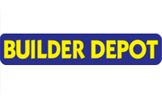News & Events / ...
A Guide to Selecting Your Baler
There comes a point in the life of any business where your business growth is matched by the growth of the recycling and waste you manage. Without the right plan and recycling equipment, cardboard, plastic, and general waste can wreak havoc in your storerooms and warehouses.
Waste balers remove the chaos from waste management. However, you need to select a baler that’s up to the job. Here’s what you need to know about finding the right recycling baler.
Begin with Waste Types
The first step in any new waste management program is to identify the types of waste materials you currently process. You can bale the following materials:
- Cardboard
- Plastic
- Textiles
- PET bottles
- Paper
- Polystyrene
- Aluminium
- Tyres
- Dry waste
Although you can bale multiple types of materials with one machine, you may need a different size and type.
For example, if you largely process cardboard boxes and plastic packaging, a small baler may meet your needs. You need less force and less space because cardboard is not only easier to compact but holds its shape well.
On the other hand, a business who processes cardboard as well as PET bottles or aluminium will need a more powerful baler like the mid-size baler. Unlike cardboard, PET bottles and aluminium require more power to compress, as they try to hold their shape.
With your list of materials in hand, you’ll then need to calculate how much waste you need to process.
Refine by Volume of Waste
Waste balers come in several shapes and sizes, ranging from compact balers for convenience stores and supermarkets to standard or large balers for high-volume users like recycling centres, waste management companies, distribution centres, and the automotive industry.
You’ll find two general shapes of waste balers: vertical and horizontal waste balers.
Most SMEs in retail can opt for the vertical baler. Vertical balers take up less warehouse space and include options that process most types of recyclable waste. If you expect to process up to ten bales per day, then a vertical baler will suit your needs.
For waste management businesses, including waste brokers, who must process for high volumes of waste, the vertical baler has limitations.
A horizontal baler can process more materials at once, transforming recyclable materials into larger bales. Horizontal balers also offer more consistency in the bales they produce, which simplifies storage and appeals to those who use baled materials as an income stream. Horizontal balers also help these businesses reduce labour by over 50% against vertical balers when baling large volumes of material.
Proceed by Considering Future Business Requirements
The final requirement for choosing your baler comes down to your own business projections. Ideally, you want a slightly bigger baler than you need today, so that your business can grow into it rather than finding a need to replace it down the line.
For some businesses, it may be more prudent to rent a waste baler. Renting recycling equipment often makes sense for retail businesses who go through peak periods, like holidays. Leasing allows you to expand your recycling options when you need it most, without committing to the cost of buying or maintaining new equipment.
Are you weighing your recycling options? Trusted by top retailers like Jysk and Builder Depot, the LSM team can help you streamline your recycling activities and show you how a waste baler can pay for itself. Get in touch to learn more or request a quote.
Could the right waste baler pay for itself?
Selecting the right baler for your business can
reduce waste collection fees and actually earn
you money, by turning that waste into a saleable
commodity, baled and ready for collection.
Why a baler is key to efficient waste removal
Using a baler significantly reduces the labour involved
in flattening boxes manually and improves waste
management by compressing recyclable waste,
enhancing the efficiency of your business.
Our Customers
As the UK’s leading waste baler specialist, LSM supplies shops, garden centres, hotels,
hardware stores, farm shops etc. with waste solutions for various recyclable materials
including cardboard, paper and plastics etc.









